Thermoregulation: A day old chick cannot regulate its body temperature. Therefore you need to supply the thermal neutral zone for it.
Start warming the building 24-48 hours before chicks arrive. Warming a concrete floor can take one to 2 days. A chick on a cold floor will refrain from eating and be inactive. The most critical period is the first five days. Gradually within 2 weeks, the chick becomes more capable of regulating its body temperature. The temperature at the chick level should run from 31 to 33 centigrade and gradually stabilize at 21 degrees at 28 days.
In general, smaller chicks need a higher brooding temperature than bigger ones. A simple and good way to check how your chick is feeling is to hold its legs against your cheek. If you feel they are cold you should raise the house temperature.
Correct temperature management will ensure high weight gain, lower FCR, lower cull rate, lower mortality and practically reduce bird growing costs.
Monitoring: Check your chicks after 24 hours to see if they have been properly accommodated. Randomly select 100 chicks. 95% of the chicks should have full crops with a mixture of feed and water. If this goal is not reached, go through a checklist and see if something is wrong. Feed quantity in feeders and on the floor, water quality, building temperature, and hatchery problems, can all contribute to this feature.
7th-day weight gain: 7-day-old chick weights are an excellent way to see how well did they start. Chicks should quadruple their day-old weight within the first 7 days. Each one gram of weight gain at 7 days will yield an additional 6 grams at 35 days old! Good 7-day weight correlates positively with lower FCR and low final mortality.
7th-day mortality: This feature is also important to record. Mortality of up to 1 % in 7 days is considered a good result. If the results are way above, find out what has gone wrong.
Ventilation: This is an essentially important issue. The chick house has to be sealed from any draft wind at the chick level. This is especially applicable in the first 14 days. Never compromise ventilation to keep the correct temperature. Use minimum ventilation fans to keep the oxygen levels at the correct level.
The minimum ventilation should run on 5-minute cycles, allowing ventilation to work 20% of this cycle. That is 1 minute of fan ventilation and 4 minutes of no ventilation continuously.
Feed: Use a high-quality pre-starter and starter feed. Remember to add a toxin binder to the feed. The maze in Nigeria has a high rate of Mycotoxins that may cause feed refusal. In the first week, the feed has to be distributed on paper sheets aside from the drinkers. Feed space using paper has to occupy 50% of the floor space.
The first feed application on paper should be 50 grams/chick. Thereafter, topping up of feed on the paper and a gradual move to the feeders.
Drinking water: Drinking water should be from a tested well. Water with foul odor or wrong pH, will not be consumed by the birds. The ideal pH is from 5.5-7.5. The ideal water temperature range is 10-14 centigrade, though birds will consume water in a wider range of temperatures. Do not supply water above 30 degrees to the birds, it will not be consumed appropriately.
Stocking density: Stocking density should run around 25 kg/meter by slaughter time. As we have a hot climate in Nigeria, it is preferable not to exceed the above density.
Vaccination: To protect our flock from pathogens, a good vaccine supplier, and a good vaccination application plan should be adopted. The vaccine should be stored and shipped at the correct temperature advised by the vaccine producer. It is preferable to apply vaccines in the water early in the morning, to avoid hot temperatures during the day, and utilize the high water consumption in the morning. Deny birds from water for 1 hour for the vaccine to be utilized in 1-2 hours.
Water should be clean from any chlorine and disinfectant. Treat the water with a stabilizer or use skim milk to neutralize any Chlorine residues.
Bio-security: Disease control is one of the main challenges of broiler producers. Strict measures to reduce disease load should be implemented on the farm. Surround the farm with fences to stop unwanted visitors. Clean and disinfect the houses between depletion and introduction of new flock. Establish and perform a vermin control plan. Mice and Rats are known for Salmonella and Pasteurella vectors. Make sure that the farm staff has a full change of clothes when going into the farm. Many viral and bacterial diseases can remain in clothing and shoes, and so if not changed before entering the farm may introduce disease into the broiler farm.
- Use shoe dips with Phenol disinfectant dips before entering every poultry house. Apply vaccines correctly for utmost efficiency. Incorrect application can reduce vaccine effectiveness and harm flock health.
- Use efficient cremation facilities to dispose of dead birds. Dead birds can attract vermin, wild birds, dogs, and cats, therefore introducing viruses and Bacteria to the farm.
- Treat invading insects on the farm. Insects have been known as carriers of Salmonella and various viruses with a great potential to introduce disease on the farm.
Click HERE to see all available other poultry products.

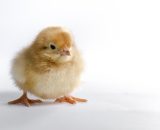
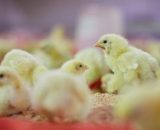
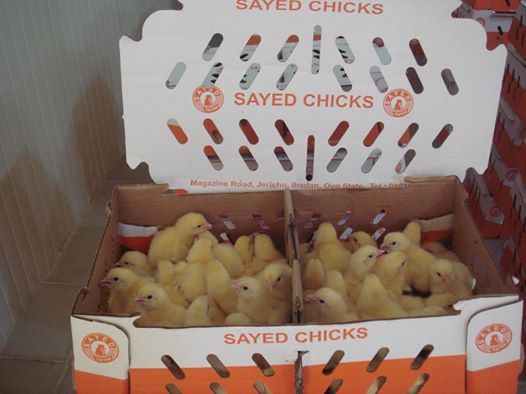

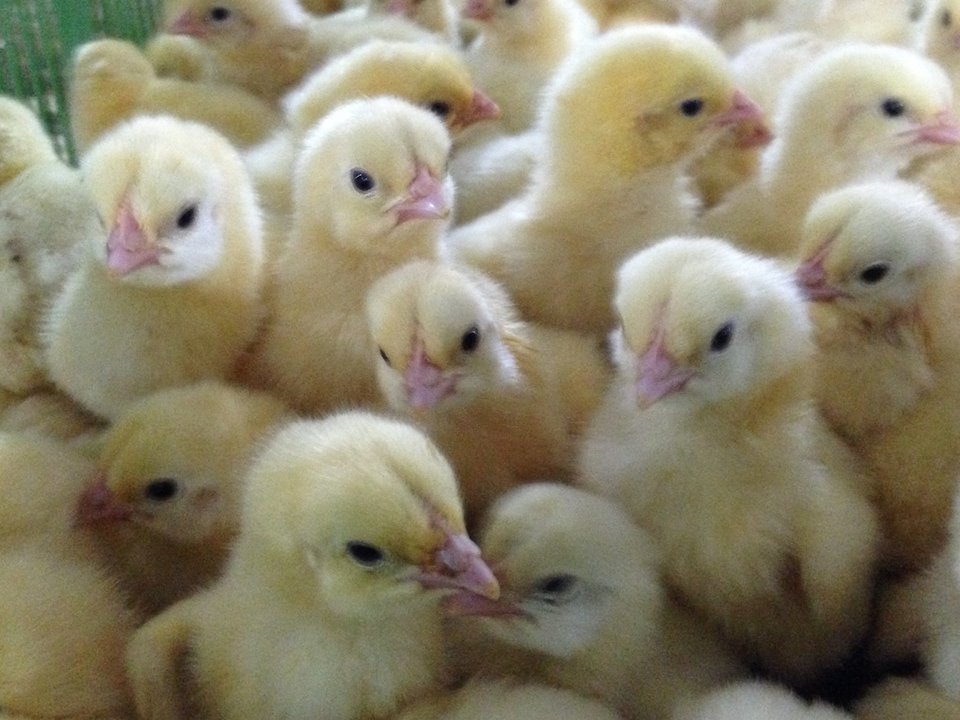




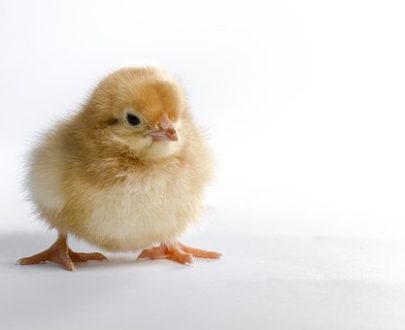

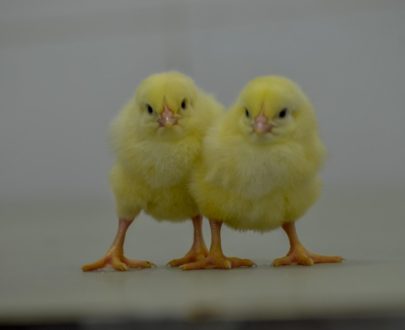
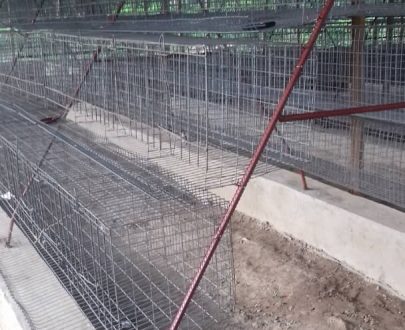
Customer reviews
8 reviews for SAYED Day Old Broiler Chicks (Ross 308)
The birds are doing so well so far.Please keep up the good work Farmsquare.
Even after my friend recommended me to buy from you, i never believed you will be able to deliver in such a short period. Yet you did. We need companies like yours in our agricultural industry to move forward.
Thank you farmsquare. Almost thought i will be scammed. My birds are doing well
(verified owner)
Am starting and I can say its still too early to say much here,but so far with you people at farmsquare, I can say my begining was a smooth take off, my first order for 50 sayed day old chicks was excellent,they took off strong and very healthy chicks,I did not observe any inherited infections at all,but I can’t the same with my second order for similar quantity,it appears this particular chicks,on arrival I quickly observed their faeces/stool,its a carton color every where,and I quickly welcome them with antibiotics and follow up with anticoccs.I quickly lost one chick in day 3,am still observing the normalcy in others as it gradually reversing in trend,I quickly noticed on the carton that they second order arrived in,its same ibadan but km8,old lagos road,podo, while the first order has on its carton No 8,Magazine road,jericho,ibadan. Although both cartons has the same Tel:08065050500,I think I prefer my supplies to originate from No8,Magazine Road,jericho,ibadan.Thank you
Thank you for your feedback sir, we will always try our best to give our customers the best, However the address on the cartons are the office address of the company, it’s the same birds from the same farm, just different administrative offices.
(verified owner)
My chicks are now doing great, I look forward to see them as big chickens,
We are glad you are happy with your order. Thank you for shopping on Farmsquare.ng
(verified owner)
Good
(verified owner)
Excellent service
(verified owner)
The worst experience ever, i was given a different product from what I ordered, I had paid for the goods and delivery before it was sent, only for me to get to the pickup station, they told me to pay for delivery that no money was given to them. On calling farmsquare, they told me that there is nothing they can do that I have to pay another money for delivery if not then I will forfeit the whole money I paid since the order will not be rectified. The day old chick breed they sent to me are weak, sickly and have stunted growth. I am absolutely disgusted with their product, service and everything about them. I will NEVER EVER patronize them again EVER.😤😡🤬🤬🤬
Only logged in customers who have purchased this product may leave a review.